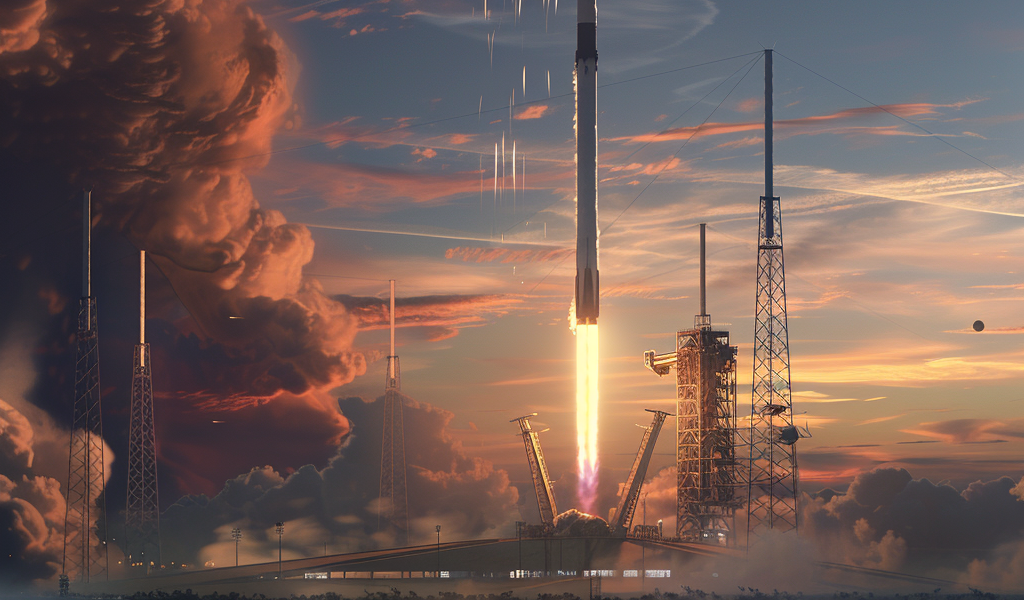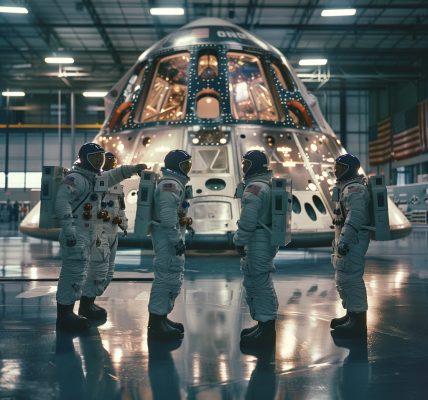SpaceX has achieved remarkable milestones with its Falcon 9 rocket, showcasing its efficiency and reliability in the realm of space launches. Recently, the company celebrated the 400th successful mission of the Falcon 9, which took place on November 26, 2024. This historic launch involved deploying a batch of Starlink v2-mini satellites from the Kennedy Space Center in Florida.
This mission also marked the 375th recovery of a Falcon 9 booster, highlighting the program’s commitment to reusability. Notably, SpaceX set a new record for the quickest turnaround time from booster landing to subsequent launch, accomplishing this feat in just 13 days and 12 hours, a significant improvement from the previous record of 21 days.
Despite the upcoming Thanksgiving holiday in the United States, SpaceX maintained its momentum with two additional launches on November 30. Within a span of just over three hours, the company successfully deployed more Starlink Internet satellites along with two Starshield satellites, a specialized version of Starlink designed for the U.S. Department of Defense.
November proved to be a record-setting month for SpaceX, with a total of 16 Falcon 9 launches, surpassing the previous record of 14. The company’s vice president of launch, Kiko Dontchev, announced on social media platform X that SpaceX aims to conduct 15 more Falcon 9 launches in December.
In 2024 alone, SpaceX has launched 119 Falcon 9 rockets, averaging a launch every 2.3 days. This figure has already eclipsed the previous annual record of 92 launches set in 2023. Should SpaceX achieve its ambitious December launch goals, the total number of Falcon 9 missions for the year could reach 134. When including two Falcon Heavy missions, the total would rise to 136 launches.
This number is particularly significant when compared to NASA’s Space Shuttle program, which completed 135 missions over three decades. While the Space Shuttle was a more complex vehicle and included human crews on every mission, the Falcon 9’s ability to match the shuttle’s yearly launch frequency underscores its role in revolutionizing space travel.
The Falcon program’s primary objective has been to demonstrate rapid and cost-effective reusability in space launches. The impressive statistics surrounding the Falcon 9 rocket reflect SpaceX’s commitment to innovation and efficiency in the aerospace industry.
As SpaceX continues to push the boundaries of space exploration, the Falcon 9 rocket stands as a testament to the company’s vision of making space travel more accessible and sustainable. With ongoing developments and plans for the future, the Falcon 9 is set to play a crucial role in the next era of space exploration.
SpaceX’s achievements not only highlight the capabilities of the Falcon 9 rocket but also contribute to the broader goals of enhancing global internet connectivity through the Starlink satellite constellation. As the company forges ahead with its ambitious launch schedule, the implications for both commercial and military applications of satellite technology are profound.
In summary, SpaceX’s Falcon 9 rocket has redefined the standards for space launches, achieving record-breaking milestones in a remarkably short period. With its focus on rapid reusability and cost-effectiveness, the Falcon 9 is not just a vehicle for launching satellites but a key player in shaping the future of space travel and exploration.





